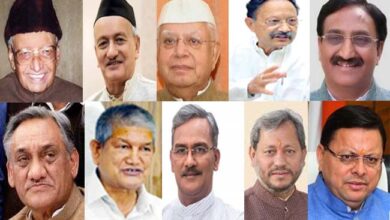Tilpatar: a Garhwali Drama

(Review of ‘Tilpatar’ a Garhwali drama by playwright Abodh Bandhu Bahuguna)
Notes on Hurting by Old Tradition and Agonizing from Changes in Asian Dramas, Hurting by Old Tradition and Agonizing from Changes in Indian Dramas, Hurting by Old Tradition and Agonizing from Changes in North Indian Dramas, Hurting by Old Tradition and Agonizing from Changes in Himalayan Dramas, Hurting by Old Tradition and Agonizing from Changes in Uttarakhandi Dramas, Hurting by Old Tradition and Agonizing from Changes in Garhwali Dramas A Garhwali drama ‘Tilpatar’ written for radio medium by playwright Abodh Bandhu Bahuguna opens many psychological fields and also talks about hurting by old custom to common man.
‘Tilpatar’ drama has main characters Bahuguna, Uniyal, Dangwal and Dobhal; assisting characters Mrs. Bahuguna and Mrs. Dobhal all reside in Nagpur. Once, Bahuguna, Uniyal, Dangwal and Dobhal were four topmost Brahmin casts called ‘Chauthu Baman’ (group of four Brahmin castes).
Initially, Uniyal, Dangwal and Dobhal characters talk about old glory of these four topmost Brahmin castes in Garhwal. In fact the talk is the real expression of Abodh Bandhu Bahuguna himself about changes took place suddenly in Garhwal and other parts of India that Bahuguna, Uniyal, Dangwal and Dobhal are no more respected by other Garhwali casts as these four casts were recognized in old time.
This type of pain is still found among upper Brahmin castes, Rajput Thokdar for their old glories of recognition and surprisingly such pain is found among high profile Shilpkars too who were recognized much in past for their craftsmanship.
The focus of drama is on the hurting by old custom of Garhwal. Bahuguna keeps his wife locked when he goes out. Uniyal, Dangwal and Dobhal criticize Bahuguna for his inhumanly behavior to lock his beautiful wife. However, when Bahuguna and his wife reveal the real cause behind this behavior of Bahuguna, all feel sorry for old custom of Chauth Brahmins.
Abodh Bandhu Bahuguna successfully could deal the mental agonies of Chauth Brahmins for losing the old glory of recognition in the society and at the same time he could come to the main point of drama. The dialogues are full of old and new proverbs those make the drama interesting. The playwright also shows the binding among migrated Garhwalis of sixties and their behavioral pattern in Nagpur or Delhi, Mumbai.
1-Dr Anil Dabral, Garhwali Gady Parampara (for finding Hurting by Old Tradition and Agonizing from Changes in Contemporary Garhwali Dramas from beginning till 1990)
2-Abodh Bandhu Bahuguna, Gad Myateki Ganga (for finding Hurting by Old Tradition and Agonizing from Changes in Contemporary Garhwali dramas from beginning till 1975)
3-Dr Sudharani, Garhwal ka Rangmanch (for finding Hurting by Old Tradition and Agonizing from Changes in Contemporary Garhwali Dramas from beginning till 1985)
4-Drama special issue of Chitthi Patri magazine (for finding Hurting by Old Tradition and Agonizing from Changes in Contemporary Garhwali Dramas and plays staged in Delhi, Karachi, Mumbai, Dehradun and other places)
5- Dr Hari Datt Bhatt Shailesh, Garhwali Natak evam Rangmanch: Ek Vihngam Avlokan (for finding Hurting by Old Tradition and Agonizing from Changes in Contemporary Garhwali Drams and theatres from beginning till 1985)
6-Dr Bhakt Darshan: Barrister Mukandi Lal Srmriti Granth (for finding Hurting by Old Tradition and Agonizing from Changes in Contemporary Garhwali dramatists or theatres playwrights till 1985
7- Abodh Bandhu Bahuguna,1986, ‘Chakrchal’ , 16 Contemporary Garhwali Drama collection for finding Hurting by Old Tradition and Agonizing from Changes in , B2 -B48, Janakpuri, New Delhi -110058
Bhishm Kukreti, Mumbai, India




Hi to all, for the reason that I am in fact eager of reading this web site's post to be updated on a regular basis. It includes good data.
My homepage … social media marketing
bear grylls messer
My homepage : bear grylls messer
bear grylls messer
Here is my web site :: bear grylls messer
bear grylls messer
Here is my website … bear grylls messer
bear grylls messer
My page: bear grylls messer